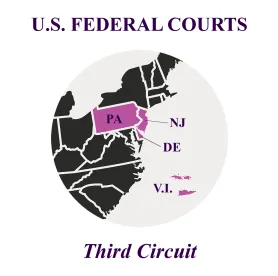In In re Anthem-Cigna Merger Litigation, C.A. No. 2017-0114-JTL (Del. Ch. August 31, 2020), the Delaware Court of Chancery (“Court”) rejected claims for damages by Anthem, Inc. (“Anthem”) and by Cigna Corporation (“Cigna”) for breach of covenants under their Agreement and Plan of Merger entered into on July 23, 2015 (“Merger Agreement”). The Court also ruled against Cigna’s claim for a reverse termination fee.
If completed, Anthem’s merger acquisition of Cigna as contemplated by the Merger Agreement would have created the nation’s largest health insurer. The merger failed to close after the United States Department of Justice (“DOJ”) initiated antitrust litigation in and obtained an order by the United States District Court for the District of Columbia (“District Court”) to block the transaction for anticompetitive effects.
First the Court addressed Anthem’s claim that Cigna breached Merger Agreement covenants requiring Anthem and Cigna to use their reasonable best efforts to satisfy all conditions to closing and complete the merger. These required Cigna to support and seek to consummate the merger, and to conduct integration planning necessary to make the case for the merger to the DOJ. Cigna breached these covenants, the Court determined, by a covert communications campaign undermining Anthem’s defense of the DOJ’s antitrust litigation and the merger closing process, as well as by actions to avoid and eventually withdraw from merger integration planning with Anthem and to resist divestitures addressing DOJ antitrust concerns and mediation with the DOJ.
The Court then concluded that Anthem was not entitled to expectation damages for Cigna’s breaches, denying in entirety Anthem’s claim for more than $21 billion. Anthem proved, the Court held, that Cigna’s actions related to the DOJ’s antitrust litigation contributed materially to the failure of the Merger Agreement’s condition precedent to closing requiring the absence of any injunction that would prevent the consummation of the merger. The Court indicated, however, that Cigna met its burden of demonstrating that this condition precedent would have failed regardless of Cigna’s actions, and therefore that Anthem did not prove damages causally related to Cigna’s breaches. In reaching this conclusion, the Court found that the DOJ independently determined, and the District Court agreed, that the merger would result in significant anticompetitive effects at the national level.
Next the Court ruled that Cigna was not entitled to any recovery for its nearly $15 billion claim that Anthem breached Merger Agreement covenants requiring Anthem and Cigna to take actions necessary to avoid any legal impediment to the merger that a governmental entity might raise and to cooperate when seeking regulatory approval. Cigna asserted that Anthem breached these (1) by failing to more aggressively pursue changes to certain insurance industry rules, and (2) by abandoning proposals for merger-specific efficiencies, each of which would have helped Anthem’s and Cigna’s case against the DOJ. To the first point, the Court found that under the Merger Agreement Anthem had the right to determine the parties’ strategy for obtaining regulatory approval. Once Anthem picked a strategy (which the Court found to be sound), it had an obligation to carry out the strategy, not to achieve regulatory approval. To the second point, the Court found that Anthem excluded information related to these proposals from presentations to antitrust regulators because Anthem could not verify this information after Cigna withdrew from the integration process. The Court also determined that Cigna failed to prove Anthem breached its obligation to try to close the Merger, as Anthem sought at all times to obtain necessary regulatory approval. The Court concluded that Anthem did not commit a willful breach of any provision of the Merger Agreement, which under the terms of the Merger Agreement Cigna was required to prove to recover under its covenants breaches claims.
Finally, the Court rejected Cigna’s claim against Anthem for a $1.8 billion reverse termination fee. Cigna made multiple attempts to terminate under a provision of the Merger Agreement that allowed either party to terminate and required payment of this fee by the other party on or after January 31, 2017 (the “Termination Date”), which either party could and Anthem did extend to April 30, 2017. The Court held Cigna’s initial termination notices to be ineffective because they were delivered prior to the extended Termination Date and in violation of the Court’s temporary restraining order enjoining termination that was then in force. Cigna delivered a further termination notice on the extended Termination Date, but after Anthem elected to terminate under a provision that did not require a termination fee. The Court determined that this attempt by Cigna also failed, because as a result of Anthem’s prior action there was no Merger Agreement left in effect for Cigna to terminate.
In re Anthem-Cigna Merger Litigation, C.A. No. 2017-0114-JTL (Del. Ch. August 31, 2020)





 />i
/>i
